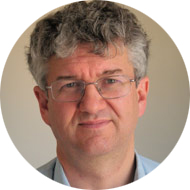 Jonathan Atkinson, Technical Director
Jonathan Atkinson, Technical Director
At the recent MPs inquiry on soil health, soil was described as the Cinderella of the environment family, finally emerging from the kitchen shadows to show its wonderful, complex, and vitally important face among the step family of air, land and water. Yes, soil is part of land perhaps, but as always in the past with groundwater in the water family, underground is out of sight, and for too long land has been in the spotlight with regards to above ground biodiversity - a great thing of course - but all living things above ground depend on soil.
With the Environmental Improvement Plan (EIP) giving soil its more deserved profile in the mix of land use, food security, sustainable development and resource management, soil scientists can take heart that their advice is finally being listened to. But the work is not over. We must now urgently move forward with actions to enable our soils to help society address its most severe challenges; food security, climate change, biodiversity loss, natural flood management, sustainable development and resource management. As the EIP points out soils are a resource not a waste to be thrown away or degraded carelessly. They are the basis of all living things!
An overarching soils framework or strategy is needed to drive the change we need, to urgently enable soils across all sectors to help meet the very real challenges we face as a society in the next 10 years, here in the UK and around the world. The science is there, the tools are there and developing further, what is needed now is a framework to set soils on the same level as air, land and water, all issues we urgently need government and all sectors to address robustly. Let the soil scientists out of the labs and out into the field and help farmers, developers, resource managers, housing developers, infrastructure managers etc. to give soil the spotlight it deserves. The Society for Environment recently published its Ten Principles of Good Soils and Stones Management, that sets the scene nicely.
Soil is the Cinderella star of the Prince’s Ball, now our government needs be a real Fairy Godmother and provide the frock (soil resource management framework), dancing shoes (Environmental Land Management Scheme) and glittering carriage (Soil Health Action Plan for England) to get her to the ball in time. Our planet hasn’t got much time left to sort this out!